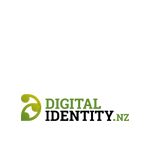Welcome back from the holiday break. I hope that you and your whanau were able to relax, re-energise and share good times. Last week saw the release of the Summary of Public Engagement of the Digital Strategy for Aotearoa discussion document. The original document itself was released in Q4 2021 to invite kōrero and submissions, despite the challenges that COVID-19 presented for public engagement of this nature.
Kudos to Digital Identity NZ (DINZ) members DIA and MBIE forming part of the cross agency team managing the process, and DINZ members BNZ, InternetNZ, Microsoft, Ministry of Education, PaymentsNZ as well as others who supported submissions. Naturally we are grateful to our national coordinator NZTech, and fellow associations AIForum and FinTechNZ for their submissions. The fact that these organisations were able to make a submission at all, bears testament to their dedication, since there were multiple calls for submissions in force simultaneously. One large private sector member with a broad scope of interest and operations remarked to me that it was dealing with six submissions in the last quarter of 2021, and I was aware that several other members in Financial Services were working on four.
Development of the Strategy itself is an essential baseline from which we can measure our progress over time towards those well considered goals. Of course, in order to deliver on the strategy and build a trusted digital economy more generally, digital identity is a critical dependency. And yet, digital identity was mentioned less than a handful of times, symptomatic of both the challenge and the opportunity for DINZ members to raise the level of understanding in society of the critical role that digital identity plays.
The draft Digital Strategy calls out the need for additional mahi on several fronts and I’m privileged to say that DINZ members are embarking on courageous and challenging work to answer that call.
April 2022 heralds the opening of DINZ’s Inclusive and Ethical Uses of Digital Identity working group (IEUDI) – a broadly scoped initiative focussed on developing a code of conduct that designers and developers of digital services can use to help ensure they meet the needs of a wide spectrum of society in Aotearoa. DINZ expects to also engage non profit organisations and subject matter experts with deep familiarity on these challenges. Please apply to join now!
In closing let me add that, after a Covid-impacted 2021, DINZ’s annual Consumer Research that tracks consumer attitudes to digital identity over time, is seeking sponsors in order for it to commence in 2022. Being the only research of its kind in Aotearoa, your organisation can demonstrate leadership to the significant public and private sector audience relying on this report for as little as $1,000. Contact us for details.
Ngā mihi nui,
Colin and the DINZ Executive Council
To receive our full newsletter including additional industry updates and information, subscribe now






